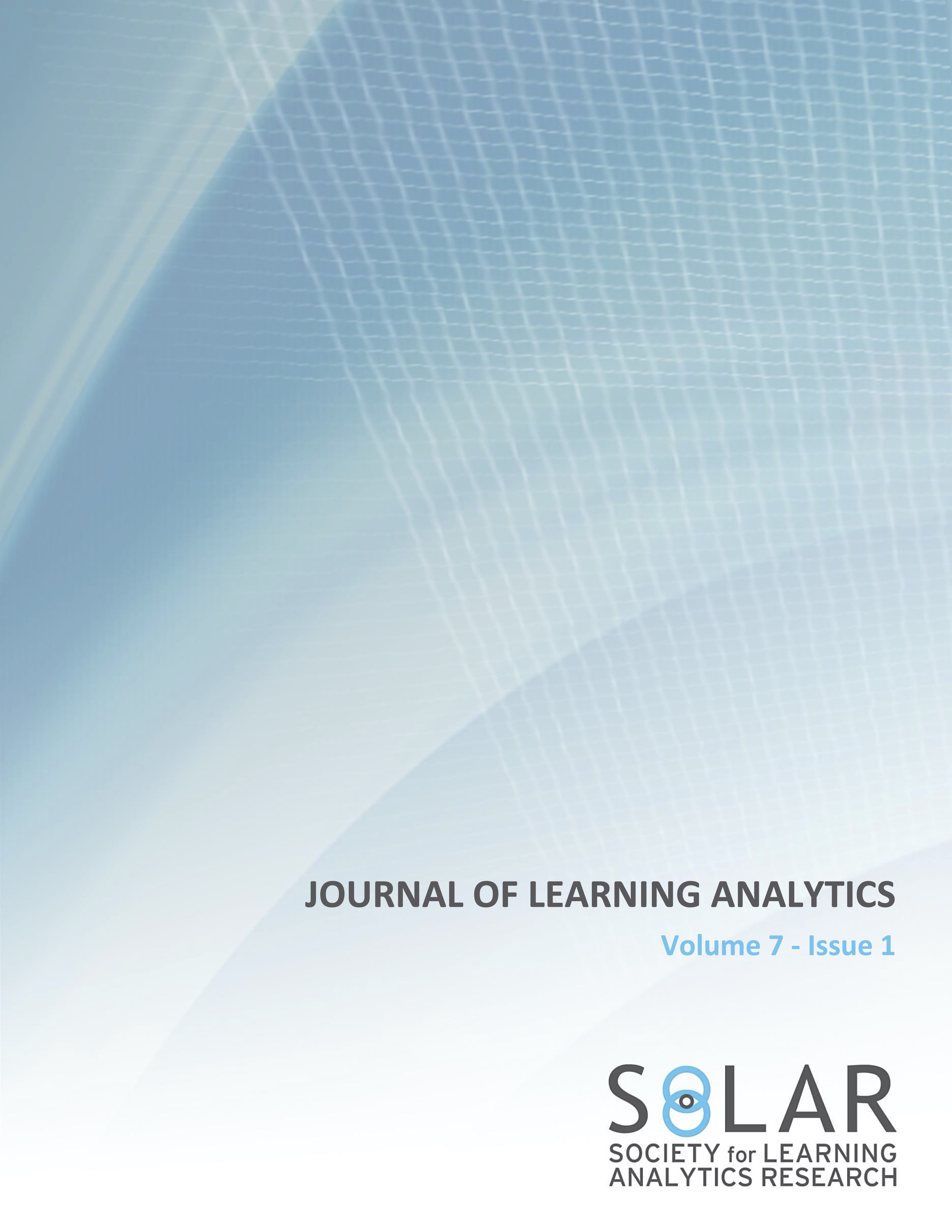Editorial: Beyond Cognitive Ability
DOI:
https://doi.org/10.18608/jla.2020.71.1Abstract
The past 70 years of research in learning has primarily favoured a cognitive perspective. As such, learning and learning performance were measured based on factors such as memory, encoding, and retrieval. More sophisticated learning activities, such as perspective changes, still relied on a fundamental cognitive architecture (Dunlosky & Rawson, 2019). Early researchers advocating for a constructivist learning lens, such as Piaget, also assessed development on a range of cognitive tasks. Over the past several decades, this view of learning as cognitive has given rise to a range of augmenting perspectives. Researchers increasingly focus on mindsets, social learning, peer effects, self-regulation, and self-perception to evaluate the broader scope of learning. For learning analytics (LA), this transition has important implications for data collection and analysis, tools and technologies used, research design, and experimentation. This special issue continues existing conversations around LA and emerging competencies (Dawson & Siemens, 2014; Buckingham Shum & Crick, 2016) but also reflects the growing number of researchers engaging with these topics.
References
Baker, R. S. J. d., D’Mello, S. K., Rodrigo, Ma. M. T., & Graesser, A. C. (2010). Better to be frustrated than bored: The incidence, persistence, and impact of learners’ cognitive–affective states during interactions with three different computer-based learning environments. International Journal of Human-Computer Studies, 68(4), 223–241. https://dx.doi.org/10.1016/j.ijhcs.2009.12.003
Berenson, R., Boyles, G., & Weaver, A. (2008). Emotional intelligence as a predictor of success in online learning. The International Review of Research in Open and Distributed Learning, 9(2). https://doi.org/10.19173/irrodl.v9i2.385
Buckingham Shum, S., & Crick, R. D. (2016). Learning analytics for 21st century competencies. Journal of Learning Analytics, 3(2), 6–21. https://dx.doi.org/10.18608/jla.2016.32.2
Collet, C., du Plessis, K., & Hine, D. (2015). Employability skills: Perspectives from a knowledge-intensive industry.Education + Training, 57(5), 532–559. https://dx.doi.org/10.1108/ET-07-2014-0076
Dawson, S., & Siemens, G. (2014). Analytics to literacies: The development of a learning analytics framework for
multiliteracies assessment. The International Review of Research in Open and Distributed Learning, 15(4).
https://dx.doi.org/10.19173/irrodl.v15i4.1878
Deming, D. J. (2017). The growing importance of social skills in the labor market. The Quarterly Journal of Economics, 132(4), 1593–1640. https://dx.doi.org/10.1093/qje/qjx022
D’Mello, S., & Graesser, A. (2012). Dynamics of affective states during complex learning. Learning and Instruction, 22(2), 145–157. https://dx.doi.org/10.1016/j.learninstruc.2011.10.001
Dowell, N. M. M., Nixon, T. M., & Graesser, A. C. (2019). Group communication analysis: A computational linguistics approach for detecting sociocognitive roles in multiparty interactions. Behavior Research Methods, 51(3), 1007–1041. https://dx.doi.org/10.3758/s13428-018-1102-z
Dunlosky, J., & Rawson, K. A. (Eds.). (2019). The Cambridge Handbook of Cognition and Education. Cambridge University Press. https://dx.doi.org/10.1017/9781108235631
Farrington, C. A., Roderick, M., Allensworth, E., Nagaoka, J., Keyes, T. S., Johnson, D. W., & Beechum, N. O. (2012).
Teaching adolescents to become learners: the role of noncognitive factors in shaping school performance — A critical literature review. Consortium on Chicago School Research. https://consortium.uchicago.edu/publications/teaching- adolescents-become-learners-role-noncognitive-factors-shaping-school
Freeman, S., Eddy, S. L., McDonough, M., Smith, M. K., Okoroafor, N., Jordt, H., & Wenderoth, M. P. (2014). Active learning increases student performance in science, engineering, and mathematics. Proceedings of the National Academy of Sciences, 111(23), 8410–8415. https://dx.doi.org/10.1073/pnas.1319030111
Matteson, M. L., Anderson, L., & Boyden, C. (2016). “Soft skills”: A phrase in search of meaning. Portal: Libraries and the Academy, 16(1), 71–88. https://dx.doi.org/10.1353/pla.2016.0009
Pulakos, E. D., Arad, S., Donovan, M. A., & Plamondon, K. E. (2000). Adaptability in the workplace: Development of a taxonomy of adaptive performance. Journal of Applied Psychology, 85(4), 612–624. https://doi.org/10.1037/0021- 9010.85.4.612
Rosen, J. A., Glennie, E. J., Dalton, B. W., Lennon, J. M., & Bozick, R. N. (2010). Noncognitive skills in the classroom: New perspectives on educational research. RTI International. https://www.rti.org/sites/default/files/resources/bk-0004- 1009-rosen.pdf
Downloads
Published
How to Cite
Issue
Section
License
TEST


